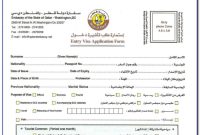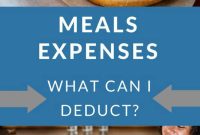When it comes to work-related travel, you may wonder if your hard-earned money is tax-deductible. Understanding what trips are tax deductible and how to calculate your expenses can help you maximize your business trip tax deductions. In this article, you will learn about the qualifications and criteria for which work-related travel expenses are tax-deductible.
Keep in mind that to qualify for a business travel deduction, you must be traveling away from your tax home and the trip must be for work-related purposes. It’s important to keep detailed records of your trip in case you are audited by the IRS. Additionally, travel expenses must be ordinary and necessary expenses for it to be tax-deductible. This means the expenses must be reasonable and necessary for the advancement of your work.
What Are Travel Expenses?
Travel expenses are the costs of travelling that are not part of your salary or other income sources. This could include things like flights, hotels, car rental fees, meals, public transportation, fuel costs, and other miscellaneous expenses. Travel expenses can also include costs related to business trips, such as registration fees, convention fees, or other professional or conference-related costs.
When taking a work-related trip, you must keep track of all your expenses. This will enable you to accurately submit a reimbursement request form to your company or to claim a tax deduction. Here is a list of common travel expenses that are tax deductible:
- Hotel Accommodations
- Meals and Incidental Expenses
- Car and other Vehicle Rental Fees
- Public Transportation
- Airfare and Train Tickets
- Conference and Convention Fees
- Registration and Professional Fees
- Travel Insurance
When it comes to calculating travel expenses, it’s important to be aware of the rules and regulations in your particular jurisdiction. Different countries and states have different tax laws and guidelines for deducting travel expenses, so be sure to research your own local laws and regulations before submitting a reimbursement or tax deduction request.
Are Work-Related Trips Tax Deductible?
It’s no secret that traveling for business purposes can be expensive. Fortunately, the Internal Revenue Service (IRS) allows business owners to claim tax deductions for work-related trips. But are all work trips tax deductible, and how do you qualify for the deduction? Here is a look at calculating your travel expenses, and how the IRS applies the deduction for work trips.
What is a Work-Related Trip?
According to the IRS, a work trip is one that is “directly related to the active conduct of a trade or business other than the taxpayer’s job.” This covers travel to conventions, meetings, trade shows, and other work-related activities. For example, if you travel to a conference to learn more about your business, or to meet with potential clients, you may be able to claim a deduction. However, you cannot claim a deduction for trips taken while working as an employee for your current company.
Calculating Travel Expenses
The expenses associated with a work-related trip are tax deductible, but you must be able to provide evidence that the trip was work related. This means that you need to save all your receipts, as you’ll need to provide documentation of your expenses in order to qualify for the deduction. Typical travel expenses include:
- Airfare, hotel, and other transportation costs
- Meals
- Parking and tolls
- Tips
- Dry cleaning and laundry
- Cell phone expenses
You can get a more detailed list of travel expenses from the IRS website. Be sure to save all your receipts and keep detailed records of your trip.
Claiming the Deduction
Once you’ve calculated your travel expenses, you can claim the deduction when you file your tax return. If you’re a self-employed individual, then you can take the deduction on Form 1040. If you own a business, then you may be able to claim an entire deduction for business travel on Schedule C. Be sure to check with a qualified tax professional to ensure that you’re correctly claiming the deduction.
When it comes to work trips, the IRS does provide a significant tax deduction. But you must be able to provide evidence that the trip was related to your business, and to calculate your travel expenses accurately. By following these guidelines, you can ensure that you’re getting the maximum benefit from your business trips.
How To Calculate Travel Expenses?
Calculating travel expenses can be tricky and require extra effort to ensure accuracy. With careful planning, record keeping, and good estimates, you can come up with an accurate budget for a trip. Here are some easy steps to help you calculate your travel expenses.
1. Estimate Transportation Costs
Transportation costs will be the most significant cost for most trips. Factors to consider include flight, rail, bus or car. You should do research to get the best option as far as fees and time. Costs include tickets, airport parking, tolls, gasoline, any rental/leasing fees, and mileage.
2. Determine Accommodation Expenses
Accommodation costs will take up a large part of the budget. If you’re traveling for business, your company might cover some, if not all, of your accommodation costs. If you are not sure, contact your employer and ask if your travel expenses will be reimbursed. If you are traveling on vacation, you have the option of staying in a hotel, an Airbnb, or camping.
3. Calculate Food Expenses
Food expenses can vary greatly depending on what kind of food you eat, where you eat it, and if you cook for yourself. For example, eating at high-end restaurants will cost more than eating at local eateries. When calculating food expenses, make sure to consider grocery costs, restaurant meals, snacks and beverages.
4. Factor in Additional Expenses
In addition to transportation, accommodation and food expenses, there are other expenses to consider such as souvenirs, entrance fees, activities, and tipping. Travelers might also face unexpected expenses, such as a delay, cancellation, or medical emergency. If you’re traveling abroad, you may need to purchase travel insurance.
These are some of the key steps to help you calculate travel expenses. With careful planning and making sure to factor in all the potential costs, you can create an accurate budget for your trip.
Final Remarks
In conclusion, many work-related trips can be tax deductible, depending on certain factors. To take advantage of these deductions, business travelers should track down all of their applicable expenses, such as transportation, meals, tips, and lodging. All of these costs can add up quickly, so it’s important to document and submit them properly in order to get the most benefit at tax time.
There are a few other things to keep in mind as well. Make sure you are aware of local laws and regulations when travelling for business, as different countries may have different rules and regulations. Additionally, be aware of filing deadlines and follow your employer’s process for submitting reimbursements. Finally, be sure to consult with a professional tax accountant if you have any questions.
By following these tips, business travelers can ensure that they are maximizing their deductions when calculating travel expenses.
Are Work-Related Trips Tax Deductible? Yes!
As it turns out, work-related travel expenses are often tax deductible, giving you greater freedom to travel for business and empowering you to make those trips even more affordable. You may be able to write off your flight costs, accommodations, meals, transportation, and more—but as with any tax deductions, make sure to check with your tax consultant for details.
Calculating your travel expenses can seem daunting, but by tracking your trips and expenses early on, you can make the filing process smoother and easier come tax season. By familiarizing yourself with the rules and regulations of tax-deductible work trips, you can travel with confidence—and easily reduce the overall cost of your corporate trips.




